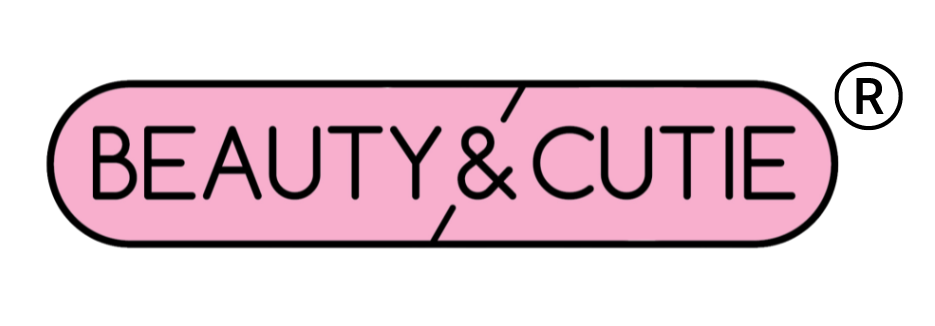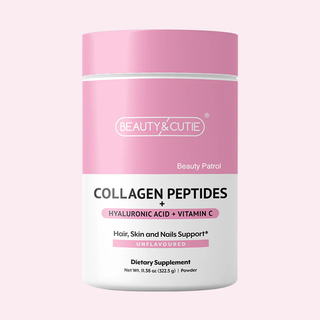In this week’s blog we will attempt to answer a question some of you may have had when reading labels on collagen products. And that is: What is the difference between vegan collagen and animal collagen? To begin, let’s review what collagen actually is and remind ourselves why it is important for our beauty and, in particular, our skin.
What is collagen?
Collagen is what is known as a “structural protein”, meaning that it is very important in the building and maintenance of the structure of tissue and cells. It is found in our skin, tendons, bones and cartilage. As you may recall, proteins are simply assemblies of amino acids, and collagen is characterized by a high content of both proline and glycine. What you may not know is that there is more than one type of collagen. In fact, 28 different types of collagen have been identified, with collagen type I the most commonly found, making up 90% of our body.
What exactly does collagen do for you?
Our body can produce collagen by itself, and we can of course gain more through diet from bone broths and chicken and fish skin. But as we age, our body does not produce as much collagen by itself as it did when we were younger, and when combined with a similar age-related depletion of elastin, another important structural protein, the result is shown on our faces as wrinkles and sagging skin. For this reason, as we get older many of us choose to boost our collagen production either through diet or supplementation, and that is when we are presented with the option between animal collagen and vegan collagen.
Is it possible to have vegan collagen?
For one thing, plants do not have collagen. It is only found in animals, and thus something other than your non-vegan collagen supplement seems a bit fishy (pun intended). If you look carefully at the ingredients label of your vegan collagen supplement, you will likely find one of three things. The first is that it is not collagen at all, but rather a supplement with ingredients that will help boost your body’s own ability to produce collagen, which we just stated decreases with age. What you may, in fact, be buying is a formulation that contains amino acids, most likely proline and glycine, some ceramides (lipids in our skin that help hold skin cells together and maintain a natural skin barrier to help seal in moisture and keep out toxins), perhaps some of the mineral copper and very likely vitamin C. It is not only a strong antioxidant, but it can also improve the body’s production rate of collagen. This is not to say that there is anything wrong with this type of supplement – it will be beneficial to some degree. Just keep in mind that with the amino acids, in particular, they could be used up just as easily in the production of other proteins in our body that have nothing to do with collagen. However, it is certainly not a “vegan collagen” supplement. It would be more accurately described as a collagen growth or production promoter formula, and you could probably do just as well through modifications of your diet.
What is vegan collagen made from?
The second thing you might find on the label is a statement claiming that certain plants have been blended together that result in amino acids that structurally mimic and function similarly to animal-derived collagen. Some of the usual suspect plants are commonly genetically modified (GMO) for one reason or another. Altogether, collagen contains 19 different amino acids, but this complete collection cannot be found in a single plant. Such formulations are again relying on the body’s ability to assemble, from scratch, these amino acids into collagen. On the other hand, when we consume fully assembled animal-based collagen, it is broken down into its base amino acids during the digestion process, sending them via the bloodstream to locations where they are needed (for example, in wound healing) and more swiftly reassembled into collagen.
Is vegan collagen effective?
The third and final thing you might find when you look at the ingredients of your vegan collagen supplement is that it is synthetically made from genetically modified yeast and bacteria. The science and production of this type of formula is still in its infancy so this scenario may be a little less likely. In principle, it does not involve cruelty to animals, but there remains a bit of a grey area to this question as well, as some wonder whether using microbes to produce collagen should still be considered vegan. And as in the previous section, the use of GMO’s may be objected to just as staunchly as support for veganism. In the long run, this may not be a solution either. As a final note, because this type of technology is new, there is little to no scientific evidence that synthetically produced collagen is effective in reducing sagging skin and wrinkles.
Conclusion
In this week’s blog, our goal was to answer the question about what the difference is between vegan collagen and animal collagen. The most important thing to note is that collagen is not produced naturally by any single plant. Only in animals are the amino acids assembled in the precise manner required to form collagen. More likely, a vegan collagen formulation will consist of ingredients specifically selected based on their known function as collagen growth promoters (eg. vitamin C). You could likely do just as well by ensuring you eat a healthy, well-balanced diet. More sophisticated attempts to synthetically produce collagen are still in their infancy, can involve GMO products, and there is little to no scientific evidence to show that they can help with the appearance of our skin.


